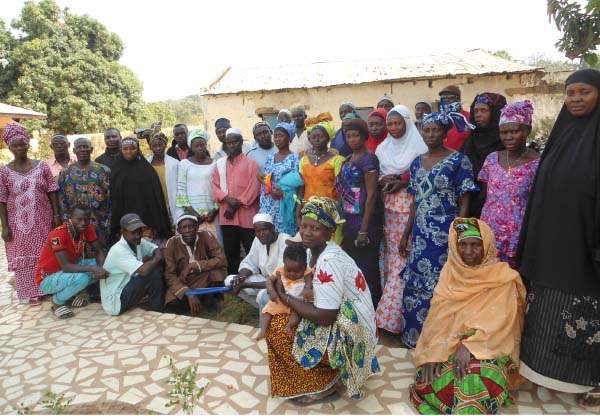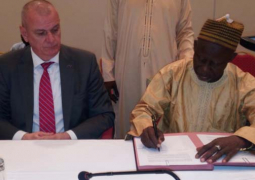
The project was supported by the UNDP Global Environment Facility (GEF) in response to a global initiative of intensifying the campaign to climate change adaptation.
Speaking at the start of three-day training activity, Faburama Fofana, national coordinator of AFES, noted that the training activity exposed communities on mapping out risk reduction plans to be able to identify local resources to mitigate the effects of climate change.
The process, he said, was part of a human rights-based approach to development to empower communities to carry out vulnerable risk assessment, and develop contingency plans to address environmental hazards.
Fofana said mitigating the effects of climate change calls for the concerted efforts of all and sundry to improve lives and livelihoods.
He thanked the GEF for building a partnership with the association in addressing the effects of climate change on the lives of the people.
The programme officer of AFES, Ba Ansu Fofana, spoke of the importance of building and strengthening the capacity of communities, on the effects of climate change adaptation to enhance food security and sustainable development.
He noted that planting of mangrove along the coastal areas of the three communities was aimed at empowering them to take centrestage in the restoration of the environment.
He thanked the GEF for the foresight in partnering with AFES in the restoration of the lost forest cover to enhance food security and incomes.
Lamin Samateh, senior environmental inspector at the National Environment Agency, noted that deforestation and bushfires remain a concern of NEA as they erode the environment and soil nutrients.
He called on the communities to be vigilant in the planting of trees and to ensure the forest is protected from bushfires.
Kaka Fofana, VDC chairperson Dasilami, and Kebba Sillah of Karantaba, both called on people to change their attitude and to help halt illegal logging and bushfires to enhance soil fertility and food security.
The alkalo of Dasilami, Kebba Kamu Fofana, and ALhaji Fakebba Fofana, a community leader, both applauded the association for their steadfastness in building the awareness of communities on the importance of restoration and regeneration of the lost forest cover.
They described the effects of climate change on human livelihood as a threat to food security and sustainable development.
The elders thanked the donors for their support in improving livelihood development and poverty reduction.
Aja Ma Arohey Gassama, lady president, used the moment to call on institutions to support them with a salt processing plant to increase incomes and improve livelihoods.
Other speakers included Kaddy Jarju and Lamin Kumba Jarju, VDC chairperson Bakang, who saidAFES hasbuilt their capacity on environmental issues, noting that destruction of the environment could be attributed to man-made causes.
Kaddy Jarju said the lost forest cover affects women by contributing to low food production.
She said planting of mangroves would contribute to halt salt intrusion, and by extension improve lives and livelihoods.
Read Other Articles In Article (Archive)

17-year-old girl seeks support to undergo overseas treatment
Aug 17, 2015, 12:14 PM



